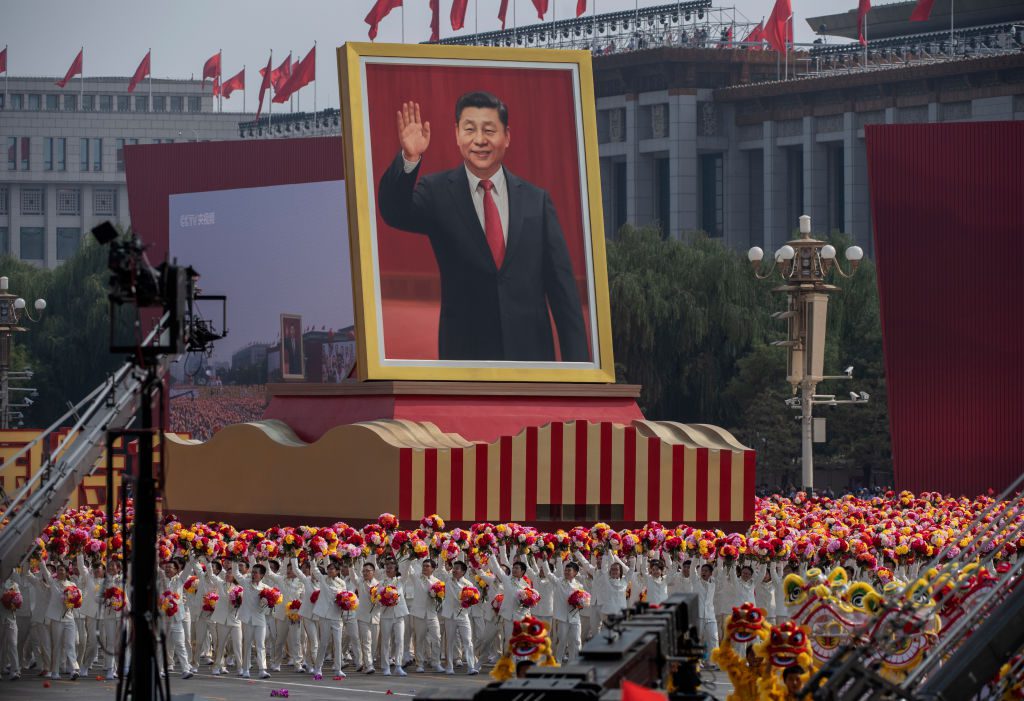Turning China Into a Hermit Empire Won’t Work

China stands alone—or at least as alone as a sprawling economic superpower of more than a billion people can stand.
America’s relationship with Beijing had already deteriorated prior to the coronavirus and has only withered since. Yesterday, Secretary of State Mike Pompeo and his Chinese counterpart put on brave faces after a summit in Hawaii, but that wasn’t enough to mask the tension. Meanwhile, China and India recently saw a deadly and extraordinarily dangerous clash erupt on their alpine border. Australia called for an investigation into China’s handling of the coronavirus earlier this year, eliciting retaliatory tariffs and an accusation that they were “this giant kangaroo that serves as a dog of the U.S.” (Metaphors are not a Beijing specialty; neither is wildlife.) The European Union is imposing tariffs on Beijing and working to curb “market distortions” caused by its firms. And Japan is signaling that it wants to bring its own manufacturing supply chains home.
That’s a remarkable roll call of opposition. Over at the Wall Street Journal, Greg Ip takes stock:
What two years ago was mostly a confrontation between China and the U.S. is becoming a broader showdown with the advanced democracies. Other countries were already worried about China’s pursuit of technological dominance, discriminatory trade practices, geostrategic assertiveness and domestic repression. Those worries intensified this year with China’s alleged lack of candor early in the coronavirus pandemic and its imposition of a national security law on Hong Kong.
Ip also notes, “What has emerged thus far, though, is not a coalition led by the U.S. but ad-hoc actions by individual countries.” That’s true, yet I can’t help but think that even some kind of linked-arms anti-China global coalition wouldn’t do much good. If nothing else, China has proven itself impervious to criticism. It’s still running concentration camps for Uighur Muslims, still hiding information about the pandemic’s origins, still dictating imperiously to Hong Kong. If anything, the coronavirus emergency has only served as an excuse for it to become more authoritarian and caustic.
And while America is speaking loudly, it’s carrying a rather small stick. The implements in our toolbox are the usual ones: sanctions, tariffs, economic retaliation measures. But if those haven’t worked against weaker nations like Iran and North Korea—and they haven’t—it’s difficult to imagine them taming a roused giant like China, whose government enjoys broad support among its numerous people and whose status as an economic bruiser can impose real pain. That isn’t to say that the coronavirus backlash doesn’t pose major challenges for Beijing. Authoritarian systems, though they tend to grow amid emergencies, can also prove unwieldy during them, as I’ve noted. And it’s certainly worth trying to end Beijing’s unfair trade practices and become less reliant on foreign supply chains.
Yet go much further and you lapse into magical thinking. Even if we somehow turn China into the Hermit Empire, we’re still left with the problem that enforced isolation couldn’t even stop the Hermit Kingdom. In which case, the notion of taming or even managing China has severe limits. Prolonged coexistence is the reality.
Comments